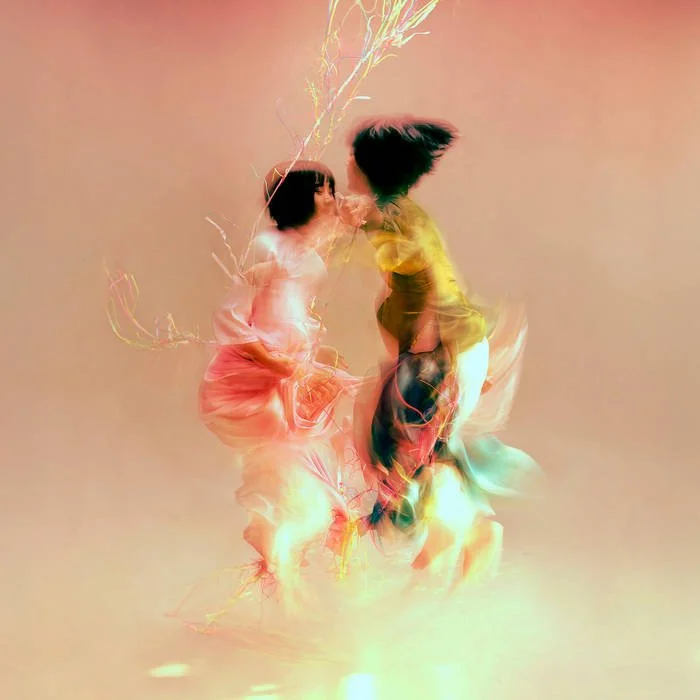SHIMA - Welcome to SHIMAJIMA
“Where are you from?”
That’s usually a simple and innocuous question with a simple answer. To say you are from a specific country usually means you’re the representative race, whether that’s Japanese, American, Chinese, or German. For those with mixed heritage or irregular circumstances, it becomes complex. Multiple answers are possible. Even if you can stake some claim to being part of multiple cultures, in most cases, you’re neither here nor there, a foreigner in your own lands, belonging to nowhere.
For SHIMA, who has a Japanese mother, an American father, born in America but raised in Japan, that is her reality. She even had formal Japanese pop idol group training, but went to college in America to study music engineering. In her short career so far, her music has reflected this confusion, from singing J-pop to making alternative R&B and now performing and producing as a DJ.
It was around the time of turning professional as a DJ/producer when she formed her true musical artistry. Being adrift from each culture, she didn’t have a natural connection to existing genres, be it techno (Berlin/Detroit), garage (UK), baile-funk (Brazil), or dancehall (Jamaica). Through an experiment of layering Japanese folk singing over afrobeats, she realized that combining culturally disparate elements works because it’s all fundamentally dance music no matter what era or location.
Hence the concept of Shimajima, an island somewhere between Japan and America, that serves as a home for the culturally homeless. At the same time, Japan still serves as the primary cultural touchstone. Musically, she combines organic elements such as Japanese folk music, traditional instruments, spoken samples, and field recordings, with powerful, sometimes aggressive, electronic beats. When SHIMA sings, she switches between Japanese and English, not just between verses but even between individual phrases. So there’s this constant melting and blending that’s going on, because that’s basically her lived experience. There are no borders, it's all blurred lines, right down to the stunning artwork by Chiron Duong whose signature style involves capturing movement in still photos. Even in terms of musical genre, there’s anything from EDM to afrobeat to moombahton in there. It’s that throughline of Japanese culture and sound that ties it all together. In a sense, it feels like viewing Japan from a global perspective, or seeing the world through Japanese eyes.
The foundation of the SHIMA sound lies in the beats. It really sounds like these songs were designed with the club in mind, and you really want a phat bass system to enjoy this properly, especially the hard-hitting “KARMA”. The layering of digital beats and big festival drums creates a primal energy that compels you to dance to it (maybe this is what they should have been stomping to in Zion). The beats also sound very tactile, you can almost feel her fingers tapping and jabbing at the Ableton Push. So it feels more like you’re listening to a live performance with dynamic use of filters, effects, and programmed patterns being triggered based on feeling and vibes, rather than someone having lined up beats in the studio.
However, the flavor comes from the Japanese elements. You’ll hear a song about cod fishing on one track (“1807”) and a children’s story about dancing mushrooms on another (“MAITAKE”). On “MYTH OF KAMIKAZE”, SHIMA challenges the idea of selfless sacrifice which is historically attributed to the stoic Japanese people. It’s a timely reminder that with sacrifice comes loved ones who are left behind, the song even closes with a man’s farewell. The koto is featured in many of the songs, and there’s an interesting similarity between pitch bending on a synth and pushing down on a koto string. There’s also a strong spiritual vibe, which makes sense because traditional Japanese instruments and singing are often featured in Shinto festivals.
“Welcome to SHIMAJIMA” is an incredibly polished work for a debut album, but SHIMA didn’t just descend from the clouds, she’s been producing and working for years to get to this point. She even mixed and mastered this album herself. If anything, it serves as her awakening, and there are hints of that in the standout track “AWA”. Among the crowd noises, there are conversations about when you learn to love yourself and one’s true form. There are gospel-like samples in the euphoric climax of the track, and it feels like a kind of personal enlightenment. It shows an intriguing blueprint for others to follow, should they want to combine their native culture with modern music. Given the constant melting and blending of cultures in the world today, it might also represent a new hope for a mixed generation.
Tokyo ON also recommends: COMA-CHI & Uyama Hiroto - Japanoia
